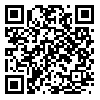BibTeX | RIS | EndNote | Medlars | ProCite | Reference Manager | RefWorks
Send citation to:
URL: http://jgn.medilam.ac.ir/article-1-170-en.html

 , Seyyed Habibollah Kavari
, Seyyed Habibollah Kavari 
 , Mahshid Foroughan
, Mahshid Foroughan 
 , Mohammad Ali Hosseini
, Mohammad Ali Hosseini 
 , Vahid Bakhtyari
, Vahid Bakhtyari 

Objective: The main purpose of this study was to determine the relationship between social support and self-efficacy among older adults residing in nursing homes in Tehran at 2015.
Materials & Methods: In this descriptive-analytic study conducted in a cross-sectional design, 217 older adults residing in nursing homes of Tehran at 2015 participated. Simple random sampling method was used to select the participants. Three tools including Social Support Appraisals Scale (SS-A), General Self-Efficacy Scale (GSE-10) and a Demographic Questionnaire were utilized to measure the variables. Collected data were entered into SPSS and analyzed through descriptive indexes and analytic tests including Kolmogorov–Smirnov test, Pearson correlation test, variance analysis and regression.
Results: Descriptive findings showed that the mean of social support and self-efficacy were 32.23±9.75 and 17.68±4.00, respectively. Moreover, social support had a significant relationship with self-efficacy (p=0/008) and social support could predict 4% of self-efficacy.
Conclusion: According to the results, older residents of nursing homes in Tehran had medium social support and low self-efficacy. Regarding the significant relationship between social support and self-efficacy, it could be suggested that by improving social support of the elderly we may be witnessed increasing of their self-efficacy.
Received: 2017/11/1 | Accepted: 2018/01/8 | Published: 2018/03/10
| Rights and permissions | |
 | This work is licensed under a Creative Commons Attribution-NonCommercial 4.0 International License. |



